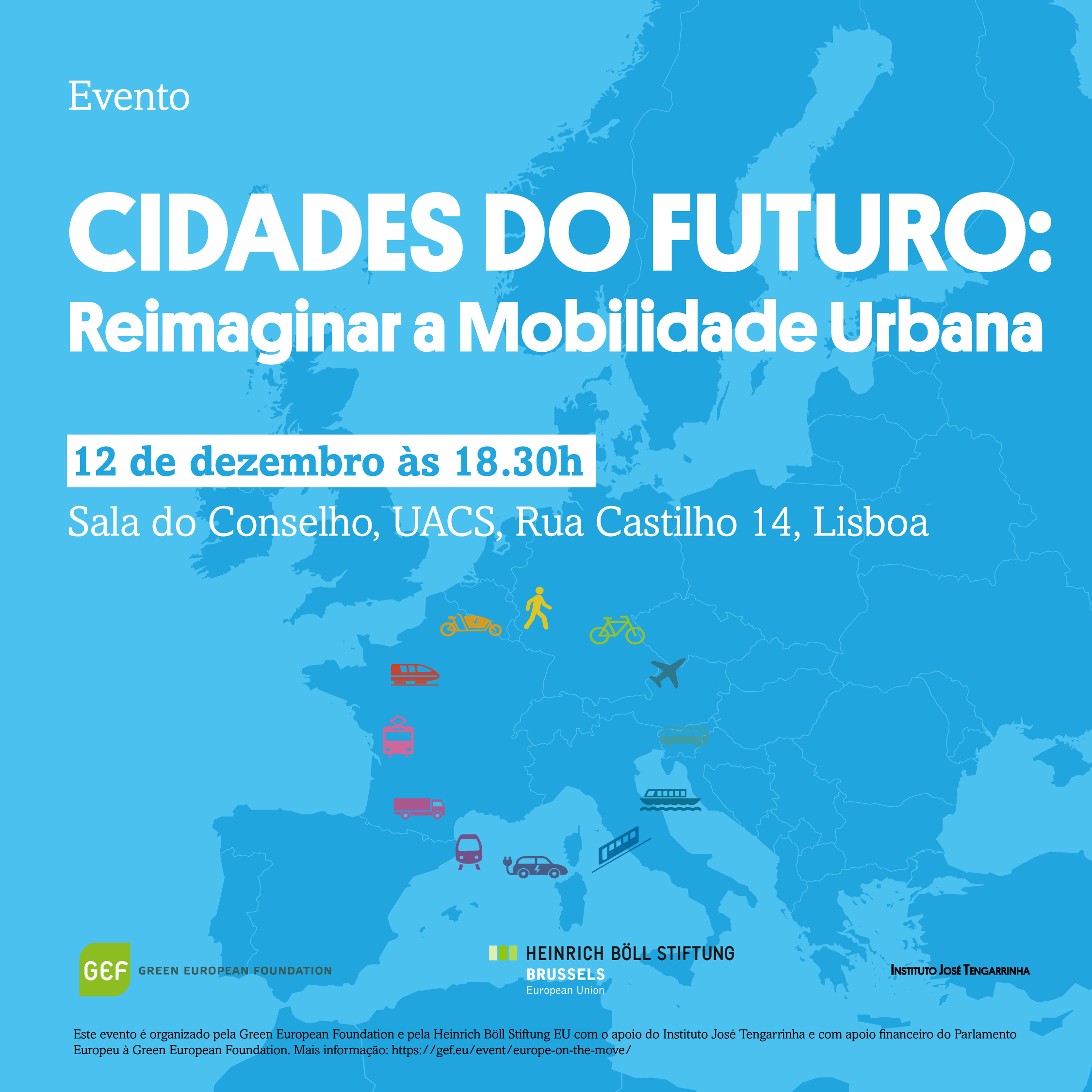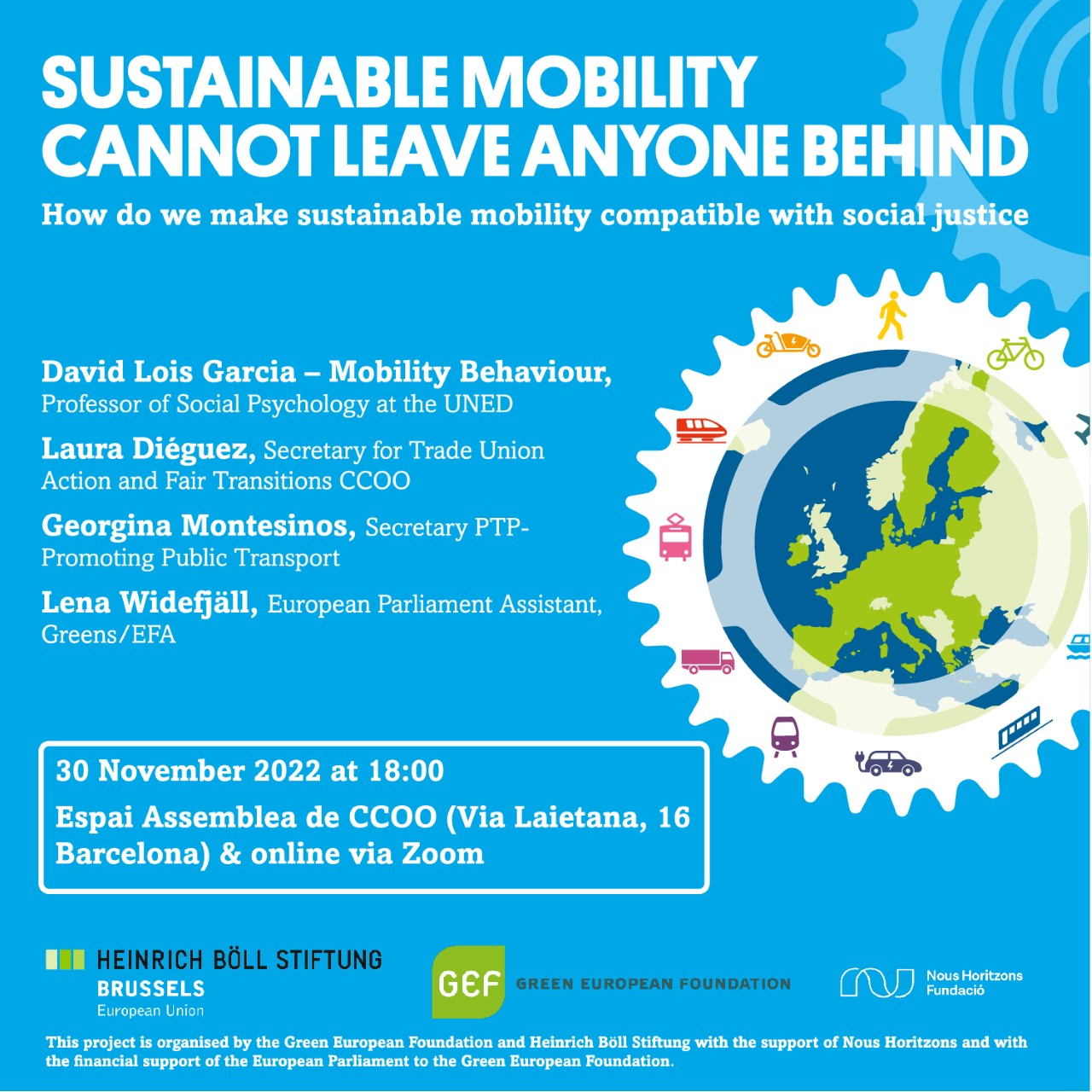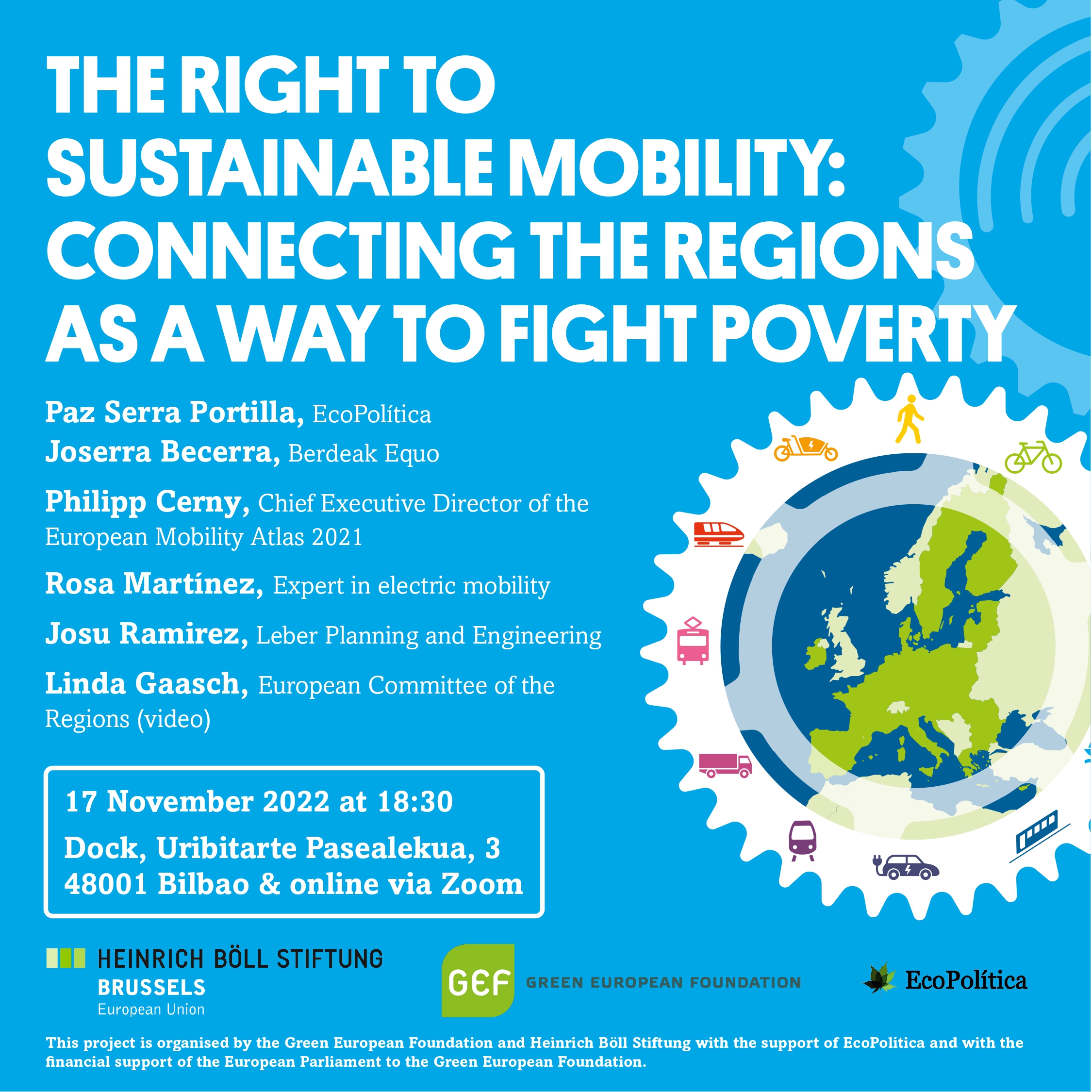Context
Mobility plays a fundamental role in people’s lives. The ease of movement not only favours the freedom to choose the place of residence and the exercise the right to work, but it is also essential to access basic public services such as education and health, as well as leisure and enjoyment of free time. It is, in short, a determining element of people’s well-being and their quality of life.
In this sense, the articulation of the subjective right to mobility in our societies, which guarantees all citizens equal conditions of access and use of mobility services, is becoming increasingly important. If mobility determines people’s quality of life, the impossibility of accessing sufficient mobility (due to physical or mental conditions, insufficient economic resources, or other factors) supposes not only a personal impediment, but also a breach of the constitutional principle of equality.
Throughout the 20th century, the economic system has linked this right with the use and enjoyment of the private car through an unprecedented cultural transformation. This has caused our towns and cities – and, ultimately, the geography in which we live – to be configured around the use and service of the private motor vehicle. No country in Europe has recognised the “right” to circulate and reach anywhere by car, and yet the car has usurped the routes traditionally used by pedestrians and other means of transport.
In fact, driving in a private car in a public space is a privilege rather than a right. Greenhouse gas emissions caused by automobiles, energy inefficiency, air and water pollution, noise, congestion of public space, accidents or the appropriation of the land are privileges associated with the enjoyment of the automobile, which are unaffordable and unsustainable for the planet, and harmful for people’s health and for society as a whole.
The war in Ukraine has accelerated the energy crisis caused by the progressive depletion of fossil fuels. However, the speed with which it has progressed has hit millions of people who use private vehicles for their daily commutes hard. According to official statistics from summer 2022, in Spain, 60% of drivers have limited the use of private vehicles, and 5% have stopped using them all together.
In this context, sustainable mobility is no longer simply a necessity to advance decarbonisation, it has now become the main alternative to tackle poverty linked to dependence on the private combustion car.
It is the obligation of local institutions to facilitate active mobility. Before the crisis, almost half of daily trips in the Basque Country were made on foot or by bicycle. However, facilitating the transfer of 40% of trips that are made by private vehicles requires adequate mobility planning at the municipal and regional levels to ensure minimum standards of safety, comfort, and accessibility. This situation turns non-motorised mobility into a high-risk exercise, instead of a routine habit.
On the other hand, public transport continues to be the main tool to guarantee everyone the right to move without distinction of physical, intellectual, economic capacity, or place of residence. In this sense, it is the obligation of local and regional authorities to act in a coordinated manner to ensure sufficient public transport coverage with minimum quality and sustainability standards, and with prices in line with the level of disposable income of users.
Lastly, we cannot forget the role that public policies will play in the coming decades, especially when it comes to reducing the demand for mobility, such as 15-minute city urban planning or land reuse policies. These will need to be combined with increased attention to rising property prices (which drive those with lower incomes to the periphery of cities), as well as addressing the social and cultural reconstruction of our way of life on a fairer and more sustainable basis.
Speakers
- Paz Serra, EcoPolítica.
- Joserra Becerra, Berdeak EQUO.
- Philipp Cerny, Chief Executive Editor of the European Mobility Atlas 2021.
- Rosa Martínez, Expert in electric mobility.
- Josu Ramirez, Leber Planning and Engineering.
- Linda Gaasch, European Committee of the Regions (video).
Practicalities
Date and Time: Thursday 17 November, from 18:30 to 20:00 (CET).
Location: Hybrid event, Dock (Uribitarte Pasealekua, 3 Bilbao) and Zoom.
Language: The main language of the debate will be Spanish. Simultaneous interpretation will be provided ES<>EN.
The event is hybrid, open and free with prior registration through this form. Once registration has been completed, a confirmation email will be sent with the access details for joining the meeting.
Reading material
The event relates to the European Mobility Atlas, corresponding Spanish translation, and associated booklet, Present and Future of Mobility in Spain.
This project is organised by the Green European Foundation and Heinrich Boll Stiftung with the support of EcoPolítica and with the financial support of the European Parliament to the Green European Foundation.






